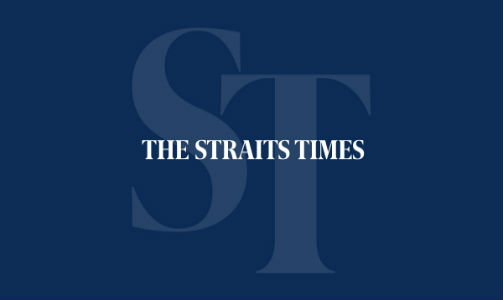No shortage of global A-listers in Davos

The Straits Times, January 25, 2013
By Ravi Velloor, Foreign Editor
DAVOS - So, what names shall we drop today?
As the world's A-listers descend on the Swiss mountain top, the celebrity hunters among the 2,500 people who have paid or been invited to the annual World Economic Forum (WEF) have no shortage of names to buttonhole, or seek to exchange cards with.
If you are the corporate sort, you could start with Mr Muhtar Kent, the chief executive of Coca- Cola, or the head of its top rival PepsiCo, Ms Indra Nooyi. Or, if telecoms is your business, how about Qualcomm chief Paul Jacobs.
Many of them appear at panels, but others come to network, and some, perhaps just to be seen.
Bankers, the tribe that have come so under scrutiny since the global financial crisis of 2008, are also here in strength, headlined by names such as Mr Axel Weber, the German central banker of repute who is now chairman of Swiss giant UBS, and Mr Lloyd Blankfein of Goldman Sachs.
There's also Mr Anshu Jain, the co-head of Deutsche Bank, the Indian-born talent whose rain-making capabilities propelled him to the top of Germany's biggest lender, even though he does not speak its language.
Because of its closed group atmosphere, the egalitarianism brought about by limited access to private transport and limited hotel capacity, the men and women with the most show up without massive retinues of underlings. They also end up packing their own bags, which is perhaps not a bad thing.
The last time I was here, I bumped into Indonesian tycoon James Riady at a bus stop and we continued our conversation during the ride. This time, the biggest South-east Asian business figure I have introduced myself to so far, is Mr Francis Yeoh of Malaysia's YTL Corp. Mr Yeoh surprised me by saying that 85per cent of his business today is in Britain, Australia and Singapore - because, he points out, these are countries with some of the most transparent regimes for business.
But Davos isn't really all about the people with the most money. Intellects and social conscience also ride into this Alpine town.
No fewer than 10 Nobel laureates are here this week, including Mr Mohammed Yunus of Bangladesh, who pioneered micro finance for people so poor they had no chance of getting a regular bank loan. In the process, he proved to the world that when it comes to repaying a loan, the underprivileged are often the most honourable.
The media used to be flies on the wall, observers and chroniclers of current common history. But in today's world, that has changed.
Some media figures are celebrities themselves. The top editors of the Financial Times are here, none more recognisable than Martin Wolf, its chief economics commentator, thanks to the photo-byline that many newspapers introduced to compete with TV. There is also CNBC's Maria Bartiromo and CNN's Richard Quest. So, too, Matthew Winkler, editor-in-chief of financial information powerhouse Bloomberg News, wearing his trademark bow tie.
Thanks to Mr George Yeo and Professor Kishore Mahbubani, Singapore punches way above its weight at Davos every year.
Mr Yeo, now vice-chairman of Kerry Group, is on the WEF board. Bereft of the trappings of power, Mr Yeo is still a voice listened to with rapt attention.
Likewise, Prof Mahbubani shares space, and attention, with the likes of Harvard don Joseph Nye. This year, they will be joined by Minister in the Prime Minister's Office, Mr S. Iswaran.
The temptation to avoid at Davos is rushing over to a celebrity and gushing over him.
I nearly did that to Dr Henry Kissinger, the man whose secret trip to China in 1973 led to the Nixon-Mao meeting that would change the face of global politics.
Davos, of course, is not all about speeches and debate. In the evening, the town lights up with cocktails, dinners and after- dinner coffee sessions - and one measure of your importance is not the invitations you accept, but the number you turn down.
I was invited to Wednesday's Microsoft dinner, hosted by Mr Bill Gates, and confess that I was keenly looking forward to it. In the end, overcome by fatigue and the thought of the late-night drive to my hotel room in the town of Klosters, a 20-minute ride, I decided reluctantly not to go.
Is Davos still relevant? I put the question to Alejandro Reyes, a former colleague, who has been helping out with the WEF for the past 16 years.
Reyes says some years ago he thought it may be on the wane. But more recently, there has been renewed interest in the annual meeting.
Professor Klaus Schwab, who founded the WEF in 1971, initially as an annual small-group meeting to discuss ways to improve the world, has no misgivings.
"Davos is different," he says. "It is a comprehensive meeting with a global agenda. It is not a place where decisions are taken but a launching pad for new initiatives and a platform for dialogue."
Back